Last night I misread a call from BMC Pregnancy & Childbirth. To be fair the email included two different request to contribute to two different kinds of blog posts with different set of instructions. Of course, I managed not to simply to swap these instructions around, but mix them up properly. The result is the text below that does not fit either of the two calls, I think.
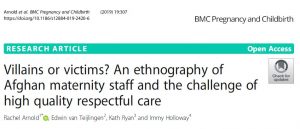 The question I tried to address was: “Tell us how your research published in BMC Pregnancy & Childbirth has links to wider issues than health!. The actual call in the email was: “Tell us about your contribution to the SDGs (Sustainable Development Goals) – We invite our Editorial Board Members who have research or personal interests related to the SDGs to contribute a blog post to our BMC Series Blog network discussing your work/interests as these relate to the SDGs”.
The question I tried to address was: “Tell us how your research published in BMC Pregnancy & Childbirth has links to wider issues than health!. The actual call in the email was: “Tell us about your contribution to the SDGs (Sustainable Development Goals) – We invite our Editorial Board Members who have research or personal interests related to the SDGs to contribute a blog post to our BMC Series Blog network discussing your work/interests as these relate to the SDGs”. 
My adopted question explains the title ‘Health is not a vacuum’. The short overview of the blog I drafted focused on all the papers I have published in this journal over a fifteen-year period from 2006-2021 [1-11]. Not surprising for a sociologist of health & illness, my argument is that there are nearly always issues wider than SDG 3 ‘Good health and well-being’ in the way health care/service or health policy factors affects maternity care and midwifery. Social, cultural and economic factors affect the way maternity services ares provided, used and perceived. SDG 5 ‘Gender equality’ springs to mind first, but also important is SDG 4 ‘Quality education’, especially of girls, and SDG 1 ‘No poverty’, of course strongly linked with SDG 10 ‘Reduced inequalities’.
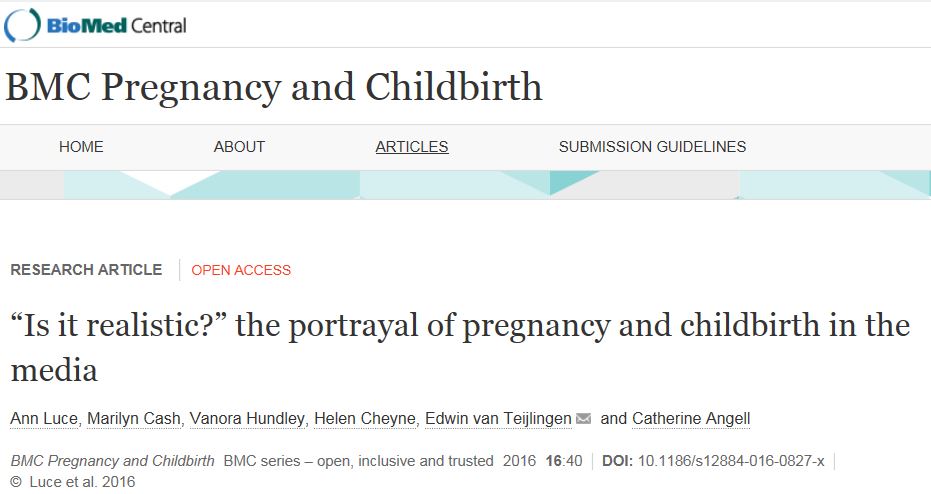 Gender is highlighted or at least part of the argument in many of our papers in low- and middle income countries [2,3,5, 7,10,11], but also in a high-income context [1,6]. Education, both health education and education more generally, for example education levels of maternity service users, appears in several papers [1,6,8-11] whilst poverty is a key factors in several papers based on our work in Nepal [2,3,5,6,11]. Several of our papers address issues wider than health that are not strictly speaking SDG, such as paper on cultural differences in postnatal quality of life among German-speaking women living either side of the Swiss-German border [4], and of course, our paper on media and childbirth [6].
Gender is highlighted or at least part of the argument in many of our papers in low- and middle income countries [2,3,5, 7,10,11], but also in a high-income context [1,6]. Education, both health education and education more generally, for example education levels of maternity service users, appears in several papers [1,6,8-11] whilst poverty is a key factors in several papers based on our work in Nepal [2,3,5,6,11]. Several of our papers address issues wider than health that are not strictly speaking SDG, such as paper on cultural differences in postnatal quality of life among German-speaking women living either side of the Swiss-German border [4], and of course, our paper on media and childbirth [6].
 Last, but not least, all papers published in BMC Pregnancy & Childbirth are Open Access and freely available online!
Last, but not least, all papers published in BMC Pregnancy & Childbirth are Open Access and freely available online!
Prof. Edwin van Teijlingen
CMMPH (Centre for Midwifery, Maternal & Perinatal Health)
References:
- Hall, J., van Teijlingen E. (2006) A qualitative study of an integrated maternity, drugs and social care service for drug-using women, BMC Pregnancy & Childbirth, 6(19) biomedcentral.com/content/pdf/1471-2393-6-19.pdf
- Dhakal, S., Chapman, G., Simkhada, P., van Teijlingen E., Stephens J., Raja, A.E. (2007) Utilisation of postnatal care among rural women in Nepal, BMC Pregnancy & Childbirth 7(19). Web: biomedcentral.com/content/pdf/1471-2393-7-19.pdf
- Simkhada, B., Porter, M., van Teijlingen, E. (2010) The role of mothers-in-law in antenatal care decision-making in Nepal: A qualitative study. BMC Pregnancy & Childbirth 10(34) biomedcentral.com/content/pdf/1471-2393-10-34.pdf
- Grylka-Baeschlin, S., van Teijlingen, E.R., Gross, M.M. (2014) Cultural differences in postnatal quality of life among German-speaking women – a prospective survey in two countries, BMC Pregnancy & Childbirth 14: 277. https://bmcpregnancychildbirth.biomedcentral.com/articles/10.1186/1471-2393-14-277
- Milne, L, van Teijlingen, E, Hundley, V., Simkhada, P, Ireland, J. (2015) Staff perspectives of barriers to women accessing birthing services in Nepal: A qualitative study BMC Pregnancy & Childbirth 15:142 biomedcentral.com/1471-2393/15/142 .
- Luce, A., Cash, M., Hundley, V., Cheyne, H., van Teijlingen, E., Angell, C. (2016) “Is it realistic?” the portrayal of pregnancy and childbirth in the media BMC Pregnancy & Childbirth 16: 40 http://bmcpregnancychildbirth.biomedcentral.com/articles/10.1186/s12884-016-0827-x
- Sharma, S., van Teijlingen E, Hundley, V, Angell, C., Simkhada, P. (2016) Dirty and 40 days in the wilderness: Eliciting childbirth & postnatal cultural practices and beliefs in Nepal BMC Pregnancy & Childbirth 16: 147 https://bmcpregnancychildbirth.biomedcentral.com/articles/10.1186/s12884-016-0938-4
- Symon, A., Pringle, J, Cheyne, H, Downe, S., Hundley, V, Lee, E, Lynn, F., McFadden, A, McNeill, J., Renfrew, M., Ross-Davie, M., van Teijlingen, E., Whitford, H, Alderdice, F. (2016) Midwifery-led antenatal care models: Mapping a systematic review to evidence-based quality framework to identify key components & characteristics of care, BMC Pregnancy & Childbirth 16:168 http://rdcu.be/uifu
- Symon, A., Pringle, J., Downe, S, Hundley, V., Lee, E., Lynn, F, McFadden, A, McNeill, J, Renfrew, M., Ross-Davie, M., van Teijlingen, E., Whitford, H., Alderdice, F. (2017) Antenatal care trial interventions: a systematic scoping review & taxonomy development of care models BMC Pregnancy & Childbirth 17:8 http://bmcpregnancychildbirth.biomedcentral.com/articles/10.1186/s12884-016-1186-3
- Ladur, AN, van Teijlingen E, Hundley, V. (2018) `Whose Shoes?’ Testing educational board game with men of African descent living in UK, BMC Pregnancy & Childbirth 18:81. http://rdcu.be/JXs0
- Arnold, R., van Teijlingen, E., Ryan, K., Holloway, I. (2019) Villains or victims? An ethnography of Afghan maternity staff and the challenge of high quality respectful care, BMC Pregnancy & Childbirth 19 :307 https://rdcu.be/bPqlj

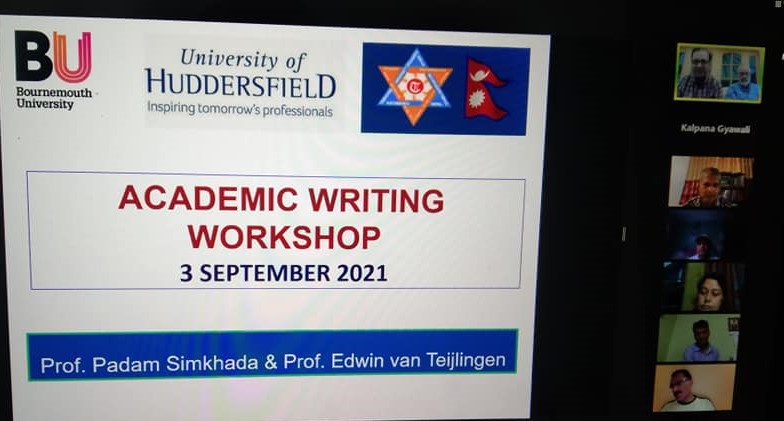
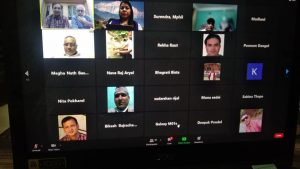

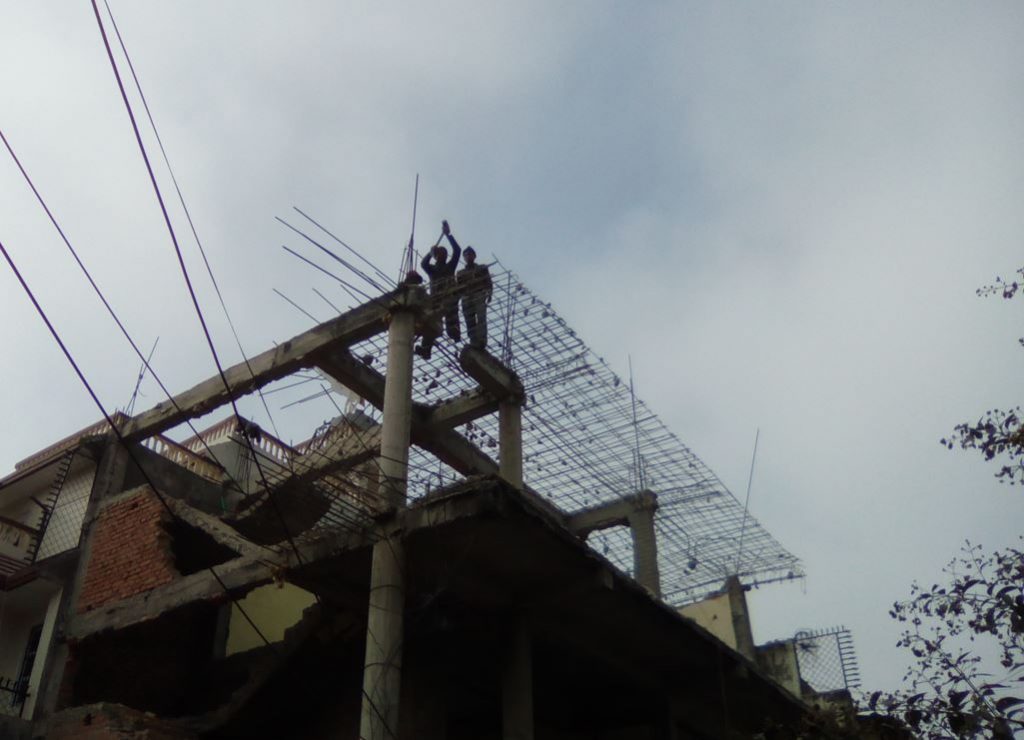

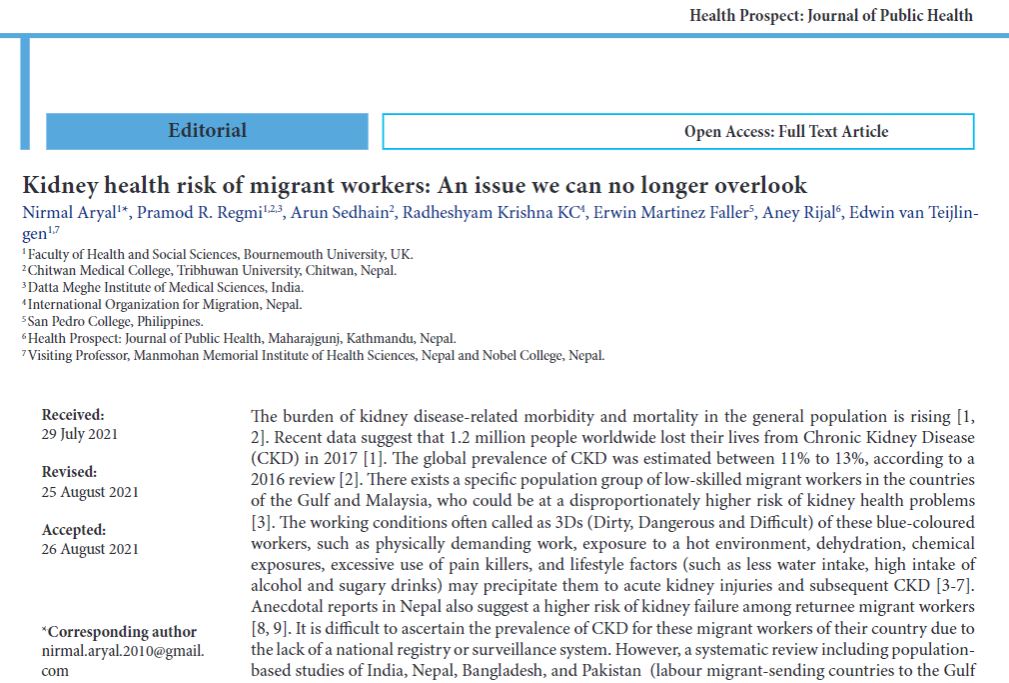







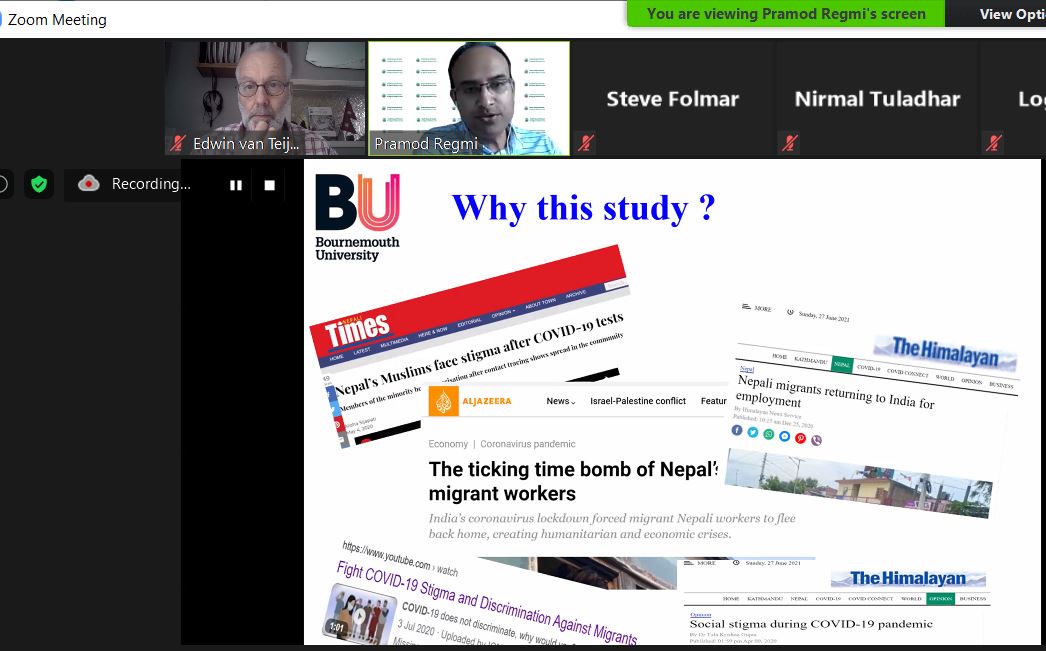

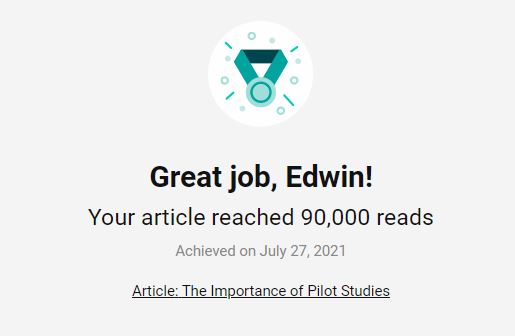


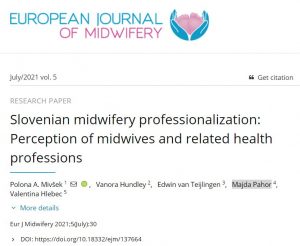

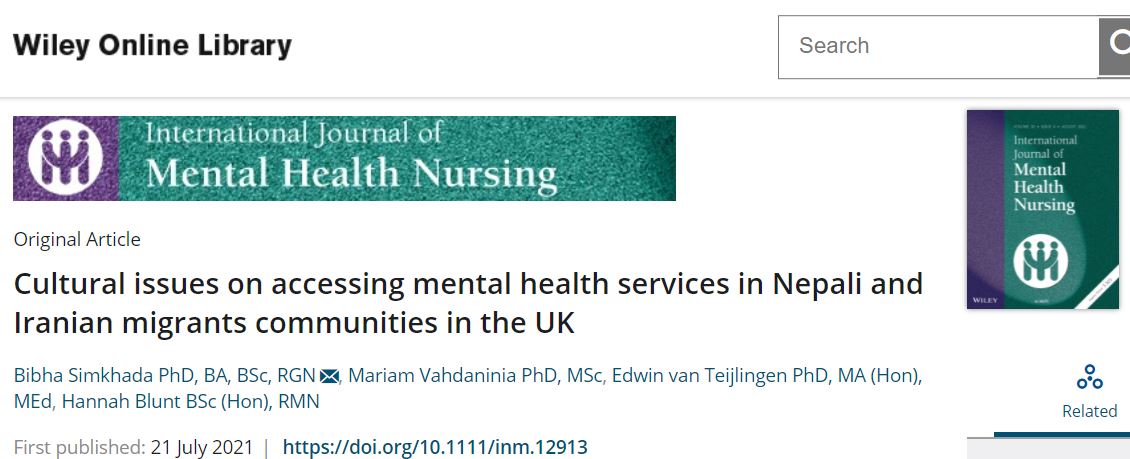
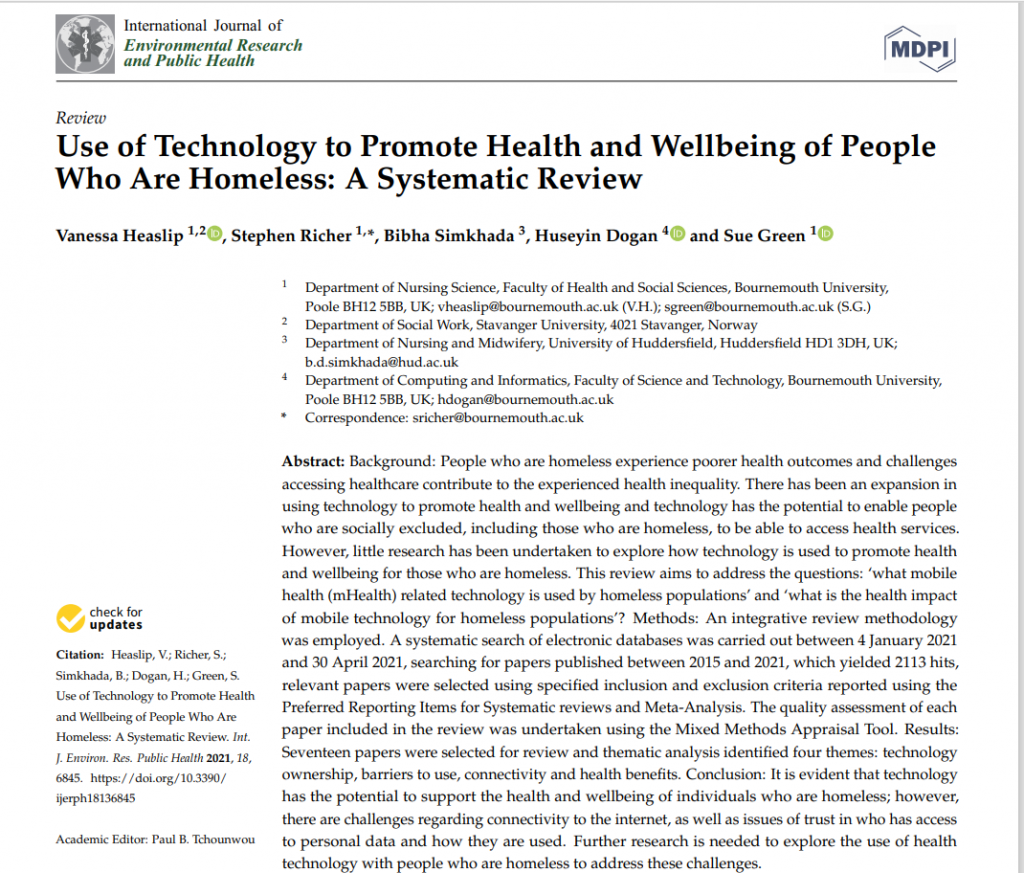












 Visiting Prof. Sujan Marahatta presenting at BU
Visiting Prof. Sujan Marahatta presenting at BU 3C Event: Research Culture, Community & Can you Guess Who? Friday 20 March 1-2pm
3C Event: Research Culture, Community & Can you Guess Who? Friday 20 March 1-2pm Beyond Academia: Exploring Career Options for Early Career Researchers – Online Workshop
Beyond Academia: Exploring Career Options for Early Career Researchers – Online Workshop UKCGE Recognised Research Supervision Programme: Deadline Approaching
UKCGE Recognised Research Supervision Programme: Deadline Approaching SPROUT: From Sustainable Research to Sustainable Research Lives
SPROUT: From Sustainable Research to Sustainable Research Lives ECR Funding Open Call: Research Culture & Community Grant – Apply now
ECR Funding Open Call: Research Culture & Community Grant – Apply now ECR Funding Open Call: Research Culture & Community Grant – Application Deadline Friday 12 December
ECR Funding Open Call: Research Culture & Community Grant – Application Deadline Friday 12 December MSCA Postdoctoral Fellowships 2025 Call
MSCA Postdoctoral Fellowships 2025 Call ERC Advanced Grant 2025 Webinar
ERC Advanced Grant 2025 Webinar Update on UKRO services
Update on UKRO services European research project exploring use of ‘virtual twins’ to better manage metabolic associated fatty liver disease
European research project exploring use of ‘virtual twins’ to better manage metabolic associated fatty liver disease